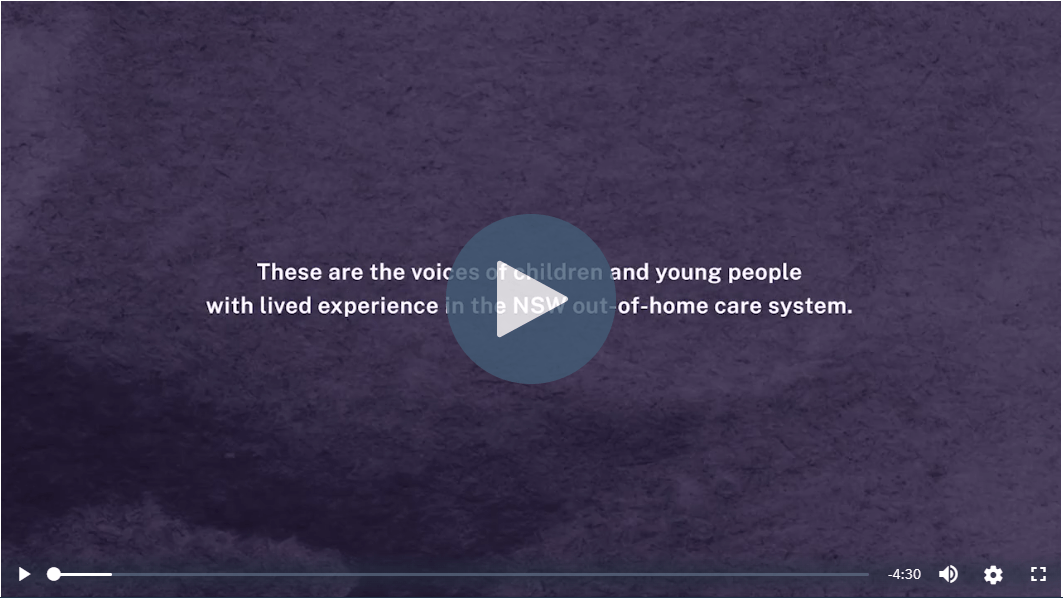
Asked but not heard: The importance of listening to young people in out-of-home care
‘Asked but not heard: The importance of listening to young people in out-of-home care’ blog article was written by Kelly Royds, Head of Knowledge Mobilisation and Innovation at the Centre for Excellence in Therapeutic Care (CETC).
“I have been asked. I don’t think I’ve been heard like 95% of the time” – Young person interviewed in ACYP Out-of-Home Care Report
A recent report from the Office of the NSW Advocate for Children and Young People highlighted the ongoing importance and essential need for government to listen and respond to the voices of children and young people in out-of-home care.
The report followed an extensive ABC investigation revealed disturbing stories about children abused in state care and after a bill hoping to codify changes recommended by Professor Megan Davis in her 2019 Family is Culture report stalled in parliament.
NSW Advocate for Children and Young People Zoë Robinson said she was confronted by the findings in the report. “What is clear is that we are not consistently listening or providing a place for children and young people in care to be heard about all the decisions that affect their lives.”
One of the gaps identified was an ongoing need to work more closely with Aboriginal children and young people.
One young person who participated in the research said, “There was a lack of support around my cultural learnings…I wasn’t taken back to country; I wasn’t connected to my own elders or community or anything like that.”
Although the themes of loss of culture, trauma, leaving care, health, sibling separation and lack of safety will be familiar to many, the report provides yet another indictment of a failure to act on what children and young people have been saying (or shouting!) for years.
On the flipside, when children and young people do feel heard and involved in decision-making about their life, it opens up space for healing and ongoing participation. One young person interviewed in the report said, “[It] just makes you feel like you’re an actual human instead of just getting told what you have to do.”
The report demonstrated the importance of supporting voice and agency for children and young people in care. While we wait to see the NSW Government’s response to the report’s recommendations, the research offers carers, workers and others who work with children and young people in out-of-home care a chance to reflect on the ways that their voices and experiences can be prioritised.
Visit the ACYP Out-of-Home Care Report to learn more and hear from children and young people with lived experience in the NSW out-of-home care system.
This blog is part of a series on child and youth participation, and was originally published on the CETC Blog. Keep an eye out for our next one or subscribe to the Professionals Newsletter to find out when our next post in the series is published.
The Centre for Excellence in Therapeutic Care mobilises knowledge about “what works” in out-of-home care to better resource carers and organisations supporting children and young people living in all forms of care, including foster and kinship care, residential care and secure care.
If you would like to find out more about CETC, visit their website here.

